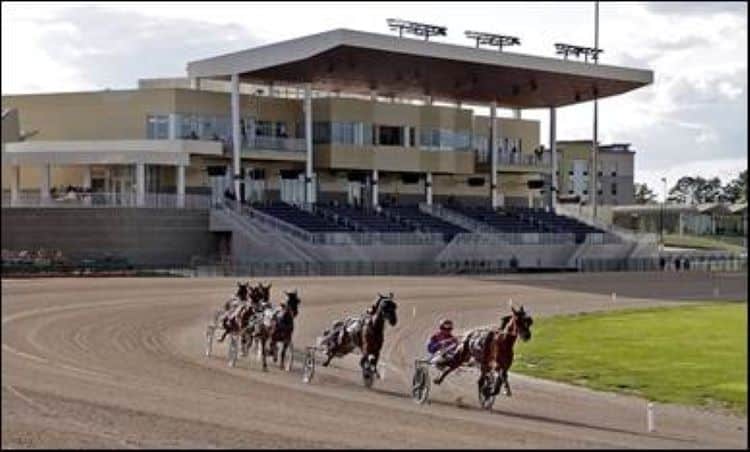For weeks, Ohio stakeholders have targeted New Year’s Day for the historic launch of legal sports betting in the Buckeye State.
The launch date became apparent in June when the Ohio Casino Control Commission (OCCC) designated Jan. 1, 2023, as the universal start date for Ohio legal sports wagering. Still, there had been some ambiguity in recent weeks on the exact time when Ohio sportsbook operators could begin accepting legal wagers. On Wednesday, OCCC Executive Director Matthew Schuler clarified any lingering questions.
“Once the ball drops in Times Square, sports gaming can commence,” Schuler said at the first of two OCCC meetings scheduled this month. Be on the lookout for preregistration offers and other OH sportsbook bonuses to get for the launch day.
The sports calendar scheduled for New Year’s Day includes NFL action, with the Browns playing the Washington Commanders that afternoon. On Jan. 2, the Bengals host the Buffalo Bills on Monday Night Football, and various top bowl games are scheduled, including the Rose Bowl.
Ohio State football could be on the calendar for postseason action then or soon thereafter, as the Buckeyes are among preseason favorites for the College Football Playoff national championship. As of Wednesday morning, FanDuel gave Ohio State odds of +300 to win the national championship, the second choice behind Alabama.
College Football national title odds: Alabama, Ohio State, Georgia lead the way https://t.co/uy7l7MK08D
— Gridiron ThinkTank (@GridironThink) July 27, 2022
There’s even the possibility an immediate Buckeye bet could be made upon the statewide launch. The two CFP semifinals are scheduled for Dec. 31, and the second game could still be taking place past midnight. If the Buckeyes are involved, the opportunity to place an in-game wager on them while toasting the new year could provide entertainment for Ohio sports bettors to mark the historic night. Schuler said bettors could have other wagering options as well from live sports taking place in other time zones after midnight.
Nearly all of the top sports betting operators across the nation, including: FanDuel, DraftKings, BetMGM, Caesars Sportsbook, PointsBet, and BetRivers, have applied for mobile management services provider licenses in Ohio.
Sports betting rules approvals
The OCCC also approved more than a dozen proposed sports betting regulations on Wednesday as the state moves closer to the universal start date. The final rules will become effective on Aug. 15.
Of the 17 sports betting rules that were formalized on Wednesday, the commission approved a handful of regulations focused on integrity monitoring throughout the marketplace. As with numerous other North American jurisdictions that have similarly explicit rules, a sportsbook operator must contract with a certified independent integrity monitor.
For the most part, regulations concerning independent integrity monitoring are put in place to compel the companies to avoid conflicts of interest in carrying out various inspection duties. For instance, two major global sports betting data providers, Genius Sports and Sportradar, practically operate a duopoly on the marketplace for official sports betting data rights among the major U.S. professional sports leagues. The two market leaders, as well as several other competitors, also provide leagues and sportsbooks with a suite of offerings that assist the entities in detecting suspicious betting trends.
Ontario regulations require sportsbooks to engage with Independent Integrity Monitors to assess potential suspicious betting.
In light of recent events…
(by @MattRybaltowski)https://t.co/Tut1YEnB5b
— Sports Handle (@sports_handle) April 6, 2022
The rules on independent integrity monitoring, in essence, require sportsbooks to contract with third-party data providers that have no role in the oddsmaking process. Besides detecting suspicious alerts, the aforementioned data providers also supply sportsbooks with sophisticated data feeds that enable the books to offer in-game betting lines in near-real time.
On Wednesday, the OCCC approved rules on the certification process of independent integrity monitors, regulations on the duties of independent integrity monitors, and standards on the compliance investigations of the companies that will serve as monitors. The regulations are comparable to ones in jurisdictions such as Colorado and Ontario, where the province approved three companies — the International Betting Integrity Association (IBIA), Las Vegas-based U.S. Integrity, and the Global Lottery Monitoring System — to carry out the integrity monitoring duties .
The Ohio regulations also require sportsbook operators to provide the monitor with a detailed list of data points regarding the suspicious wager in question. See here:
Each sports gaming proprietor must provide to its contracted certified independent integrity
monitor the underlying data for sports gaming activity the proprietor deems to be unusual.
Data must be provided as soon as practically possible. The data must be provided in a format
and method approved by the executive director and include, at a minimum, the following
information for each related sports gaming transaction:(1) Time;
(2) Odds;
(3) Location;
(4) Wager amount;
(5) Win amount;
(6) Wager type;
(7) Team, side, total, or other statistic the wager was placed upon; and
(8) Any other information required by the executive director.—Rule 3775-16-10 | Integrity monitoring.
The OCCC intends to begin the certification process for the approval of integrity monitors in September.
Deadline for Type-C gaming hosts
One proposed regulation that did not gain approval on Wednesday involves a rule surrounding a sports gaming exclusion list. The commission is working on developing a portal for potential sports bettors who are at risk of developing a compulsive gambling problem. The OCCC decided to delay the approval of the rule until the portal is closer to completion.
As of Wednesday, approximately 1,000 Ohio bars and restaurants have applied for a Type-C sports gaming host license that will allow the establishments to offer sports wagering through a self-service kiosk. Prior to the Jan. 1 launch, there could be another 1,000 potential Type-C applicants, Schuler noted.
The application window for Type-C sports gaming hosts expires on Aug. 15. While establishments are allowed to submit license applications after the deadline, the commission indicated that it cannot guarantee that those submissions will be approved in time for the New Year’s launch date.
The OCCC is scheduled to meet next on Aug. 17.
Photo: Seth Harrison/USA TODAY









